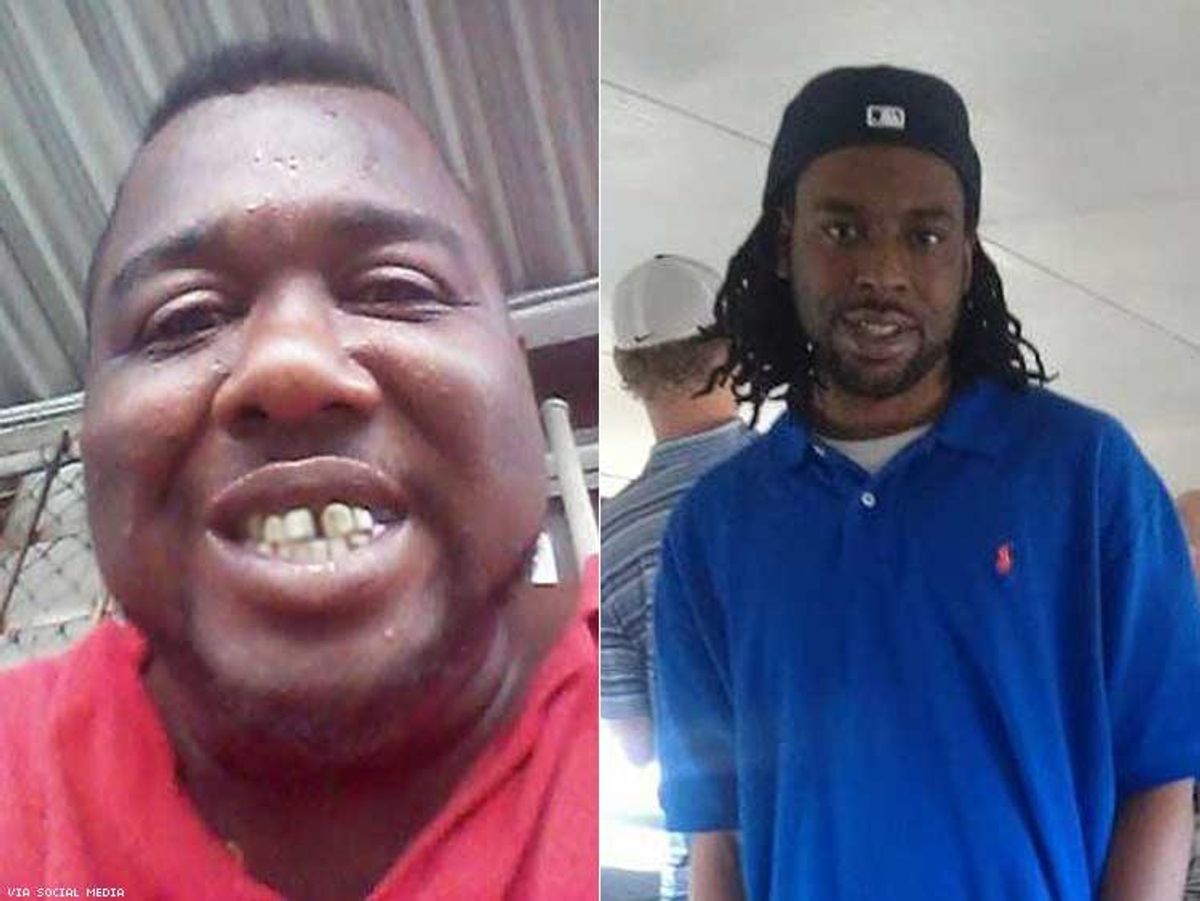That the struggle of minority communities is interlinked was underscored today in reaction by the Human Rights Campaign and others to police shootings that left two black men dead and their families mourning.
The most well-known LGBT lobbying group is citing Orlando's mass shooting while standing in solidarity with those outraged over the deaths of Alton Sterling in Baton Rouge and Philando Castile in Minneapolis.
HRC president Chad Griffin said today he's "horrified and profoundly saddened by the recent murders."
"In less than 48 hours, these two men became the latest victims of an epidemic of brutality that continues to plague our nation, joining a tragic list of 123 Black men fatally shot by police officers in 2016 alone," he said in a statement. "These men leave behind families, children and friends who struggle to find justice and healing, but are too often met with indifference and inaction by those responsible for protecting them."
Black Lives Matter came to prominence two years ago after Michael Brown was killed in Ferguson, Mo. And the list of deaths and grainy cell phone videos have kept coming ever since. In the case of Sterling, he was selling CDs outside a convenience store when police appear to have assumed he matched the description of a man with a gun and tackled him to the ground, then shooting him dead even as he was pinned. For Castile, his fiancee recorded a Facebook video in the moment after a police officer shot four bullets into him while reaching for his drivers license during a routine traffic stop.
Two of the founders of Black Lives Matter, Alicia Garza and Patrisse Cullors, are queer black women, and the HRC statement calls out an obvious fact often taken for granted, that the LGBT community includes queer people of color.
"The LGBTQ community is as diverse as the fabric of our nation," said Griffin. "We are African Americans, Latinx, women, Christians, Jews and Muslims -- and so many more identities -- and we must stand together against violence that targets any portion of our community. Today, as we grieve and mourn, we are also united in demanding solutions to stop the tragic epidemic of police-involved deaths."
Griffin noted the NAACP was there for LGBT people after Orlando.
"On a Sunday morning less than a month ago, the nation awoke to news of a tragic mass shooting that stole the lives of 49 LGBTQ people and our allies -- almost all of them Latinx," said Griffin. "That same afternoon, the NAACP stood shoulder-to-shoulder with us to speak out against the hate violence that has targeted our inextricably-woven communities."
The pair of high-profile shootings comes days after a Black Lives Matter protest actually halted the Toronto Pride parade for 25 minutes. Backlash from some over Toronto claimed a gay space wasn't the time to talk about police brutality, ignoring the history of pride parades as a response to police violence at Stonewall. One conservative columnist, Globe and Mail's Margaret Wente, branded Black Lives Matter activists as "the new bully on the block." The Toronto Sun's Sue-Ann Levy suggested renaming the group "Nobody Else Matters."
But it wasn't only the reaction after the parade that attacked Black Lives Matter, which was in part calling attention to the story of Andrew Loku, a black man killed by police after they responded to a noise complaint. The activists said they were yelled at and had bottles thrown at them during the parade. "There's no pride in racism," they wrote on Twitter afterward.
The activists had been invited to march among honored guests at the parade, and they planned a protest that called for changes, including removing police floats from future parades. Removing the floats isn't a solution to the problem but a way of constantly protesting until a solution happens.
There's a lack of solutions in general, points out bisexual columnist Roxane Gay, writing today in The New York Times.
"Tuesday night I heard about Mr. Sterling's death, and I felt so very tired. I had no words because I don't know what more can be said about this kind of senseless death," she wrote, adding that "this brand of tragedy has become routine."
"I don't know where we go from here because those of us who recognize the injustice are not the problem," she wrote, openly doubting anyone involved in Sterling's death will face justice. "Law enforcement, militarized and indifferent to black lives, is the problem. Law enforcement that sees black people as criminals rather than human beings with full and deserving lives is the problem. A justice system that rarely prosecutes or convicts police officers who kill innocent people in the line of duty is the problem. That this happens so often that resignation or apathy are reasonable responses is the problem."













































































